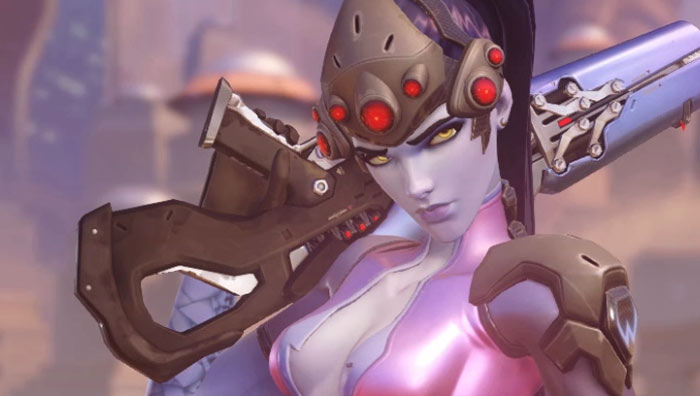Overwatch director explains the ins and outs of matchmaking
There's a funny story about a Widowmaker player in there, too.

Overwatch Game Director Jeff Kaplan has posted another lengthy message on the Battle.net forums, this one focusing on matchmaking: How it's supposed to work, how it actually works, and why it sometimes seems like Blizzard's entire online universe has a personal grudge against you.
Matchmaking is a very complex process that takes into account a number of different factors when putting players together. Time is a factor—you don't want to wait forever to play a match—and so is ping: Being an HPB in a game filled with LPBs is nobody's idea of fun. Grouping, which simply means that the system will try to set groups of players against other groups of similar size, is also important, but it's also where things start to get a little trickier.
“You can group with people of wildly varying skill and ping and we allow you to. It’s pretty unlikely that there is another group in the queue that exactly mirrors the unique circumstances that you have set up (pings, skills etc.),” Kaplan wrote. “We want you to group. We feel that it’s the best way to play the game. So we try to avoid things that discourage grouping and we want to continually improve the social systems so that you’ll find it easier and easier to group with people you have chosen to play with. Playing with people you choose to play with is going to be more reliably fun than playing with people we choose for you.”
And then there's “Matchmaking Rating,” otherwise known as MMR, which is the crux of the system. Each players has his or her own MMR, and it goes up and down with wins and losses. But how much it shifts depends, like everything else, on other factors, including the map you're playing, whether you were attacking or defending, and even the individual performances of the other players in the match. There are also elements that Blizzard can't control: Your little brother plays on your account, your cat walks in front of the screen, the batteries in your wireless mouse crap out (“Why do you use a wireless mouse btw?”), or maybe you just stumbled home from the bar and decided it'd be a good time to play some videogames.
One thing that doesn't have a bearing on your MMR, however, is your win/loss ratio. “We are not trying to drive your win/loss percentage toward a certain number (although the fact that so many people are at 50% win rates makes us extremely happy). All the system does when it comes to matching on skill is attempt to match you with people of a similar number,” Kaplan wrote.
For all its complexity, the system sometimes goes sideways. He explained how Blizzard decided to turn off the “Avoid this player” option after “one of the best Widowmaker players in the world” complained that he had to wait excessively long times to get into matches. It came to light that hundreds of players were avoiding him, not because he was a jerk but because he was so good—kind of like Geguri—and so it was taking a long time to find him a match. And when it did, he was often placed against lower-skill players, because the system had “opened up” to a wider range of possible opponents.
“We will always be working on our matchmaking system. We’re listening to feedback, we’re playing the game a ton ourselves and we’re looking at hard data to inform our decisions,” Kaplan wrote. “I want to put it out there that there is a lot of room for improvement but also suggest that there are forces in play that cause some fair matches to sway lopsided due to forces out of our control.”
The biggest gaming news, reviews and hardware deals
Keep up to date with the most important stories and the best deals, as picked by the PC Gamer team.
Kaplan notes several times in his message that it's not a comprehensive breakdown of the matchmaking process, but it's definitely very thorough. If you have even a passing interest in how the system works and why it does what it does, you'll definitely want to read it in full at battle.net.

Andy has been gaming on PCs from the very beginning, starting as a youngster with text adventures and primitive action games on a cassette-based TRS80. From there he graduated to the glory days of Sierra Online adventures and Microprose sims, ran a local BBS, learned how to build PCs, and developed a longstanding love of RPGs, immersive sims, and shooters. He began writing videogame news in 2007 for The Escapist and somehow managed to avoid getting fired until 2014, when he joined the storied ranks of PC Gamer. He covers all aspects of the industry, from new game announcements and patch notes to legal disputes, Twitch beefs, esports, and Henry Cavill. Lots of Henry Cavill.

